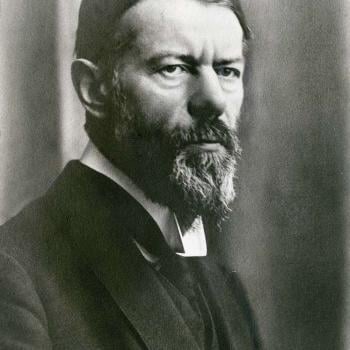Part of the reason we are having a conversation about religious freedom is because of the way we have defined religion. This has been discussed in the preliminary 2017 Interim Report: Legal Foundations of Religious Freedom in Australia. The definition proposes some belief in “a supernatural Being, Thing or Principle” and the manifestation of this in action described in canons of conduct.
Academics have long found religion a problematic category.
First, the definition is vague and restrictive at the same time. What counts as “supernatural” is unclear, in that the implication is it’s in opposition to the secular. This definition of supernatural is already loaded in favour of the way Western modernity has emptied “secular” spaces of “religious” concerns. It supposes religious people can, with intellectual integrity, do the same.
Second, the definition risks simplicity in that it implies there is a relationship between “belief” and “manifestation” that can be circumscribed. Rather, this is a complicated space of intellectual, moral and political judgement in communities of faith. Religious traditions involve complex conversations about all manner of things “secular”: from the economy to health, from transportation to war.
[Keep reading. . .]
You can’t say religion is about a belief in a “god,” since some religions don’t have a deity. (For example, Zen Buddhism.) You can’t say it’s about “transcendence,” since some religions focus on “immanence.” (For example, Pantheism.) You can’t say it’s about worship. Not all religions worship. (It’s pretty much optional in Islam, except for private prayers. New Age religions don’t worship.) A way of salvation? Not all religions believe in salvation. (For example, Shintoism.) Belief in a life after death? Not all religions have that belief. (For example, modern Judaism.) A system of morality? But not all religions care about morality. (For example, Gnosticism.) Something distinct from the “secular” realm? (What about religions that deny the sacred/secular distinction? Like animism? What about Reformation Protestantism with its doctrines of vocation and Two Kingdoms, which affirm that the divine reigns even in secular pursuits?)
The point is, for just about every definition you can come up with, you can find exceptions in the world’s religions.
Most Western definitions proceed from assumptions that derive from Christianity. Many scholars reject Christianity, but they can’t help thinking in its terms.
It is widely said today that all religions are basically the same. But nothing can be further from the truth! The vast array of religions are utterly different from each other.
Interfaith worship services and ecumenical ventures take various religions and force them into the mold of mainline liberal Protestantism. In doing so, all of the participating religions are compromised.
Illustration by ReligijneSymbole.svg: Szczepan1990Pagan_religions_symbols.png: *Triskele-Symbol1.svg:Dariusofthedark at en.wikipediaHeathenism_symbol.PNG: NyoHellenism_SYMBOL.png: IyyoAnkh.svg: AmosWolfeHandsGod.svg: AnonMoosRoman_Way_to_the_Gods_SYMBOL.png: IyyoTriple-Goddess-Waxing-Full-Waning-Symbol-filled.png: AnonMoosEmb-37.svg:Theone256 at en.wikipediaCadishismPalm.svg: Original PNG version: Nyo – SVG version: AmakukhaHamsa.svg: Frater5Continents_from_globe.png: The Transhumanistderivative-compile work: Niusereset [CC BY-SA 3.0 (https://creativecommons.org/licenses/by-sa/3.0)], from Wikimedia Commons














